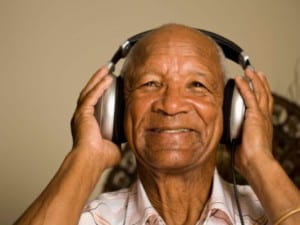 Susan Gallagher-Lepak, professor of nursing, shared insights on the value of music to individuals with dementia in the December 8 edition of the Green Bay Press Gazette. Her article titled, “Powerful gift for people with dementia: Music”, describes research from a recent issue of the scientific journal Brain about the resilience of the brain with musical memory in cases of dementia. This is especially true for well-known music. Gallagher-Lepak suggests translation of the research into practice by playing familiar music throughout the holidays for individuals with dementia and their families. Developing a playlist of favorite music, for example, can be a gift and reap psychological and behavioral benefits. Other examples, such as use of a music app for dementia patients, are also given. The article is online at greenbaypressgazette.com.
Susan Gallagher-Lepak, professor of nursing, shared insights on the value of music to individuals with dementia in the December 8 edition of the Green Bay Press Gazette. Her article titled, “Powerful gift for people with dementia: Music”, describes research from a recent issue of the scientific journal Brain about the resilience of the brain with musical memory in cases of dementia. This is especially true for well-known music. Gallagher-Lepak suggests translation of the research into practice by playing familiar music throughout the holidays for individuals with dementia and their families. Developing a playlist of favorite music, for example, can be a gift and reap psychological and behavioral benefits. Other examples, such as use of a music app for dementia patients, are also given. The article is online at greenbaypressgazette.com.
New RWHC “Men in Rural Nursing” Task Force/Roundtable
RWHC (Rural Wisconsin Health Cooperative) has created a new “Men in Rural Nursing” Task Force/Roundtable to meet  quarterly beginning January 22, 2016. Following the structure of RWHC roundtables, the group will begin operation as a task force to build its own agenda as well as work on advancing the directive of the Institute of Medicine to increase the gender diversity in the nursing workforce.
quarterly beginning January 22, 2016. Following the structure of RWHC roundtables, the group will begin operation as a task force to build its own agenda as well as work on advancing the directive of the Institute of Medicine to increase the gender diversity in the nursing workforce.
The group will come together to plan strategies to meet this goal, as well as supporting members in their work as rural nurses who are male. At the end of this initial year’s scheduled meetings, it will be determined if the group would like to continue as an ongoing roundtable.
It is hoped that results of the work of this group will be shared statewide through other RWHC clinical and administrative roundtables, and through the WI Center for Nursing (WCN) State Implementation Program (SIP grant) through the Robert Wood Johnson Foundation.
Please email Jo Anne Preston at jpreston@rwhc.com if you or one of your staff would like to participate.
The Last Word
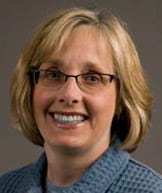 E-learning isn’t simply learning with technology, says Susan Gallagher Lepak, a Professor of Nursing at UW-Green Bay.
E-learning isn’t simply learning with technology, says Susan Gallagher Lepak, a Professor of Nursing at UW-Green Bay.
It is a process of teaching and learning supported by e-technologies that provides a structure for learning directed at impacting knowledge construction by the learner. “Students generate knowledge and meaning through interacting with content,” she says… “access content, think about it, negotiate meaning, apply concepts, communicate about it, etc… It’s an active process!”
It’s obviously a topic Gallagher-Lepak is passionate about, and as a faculty member heavily involved in teaching online courses at UW-Green Bay, it is why she chose to share, “E-Learning: The Train has Left the Station,” a topic of her choosing if she had only one final lecture left to give. She is the third of six UW-Green Bay faculty members taking part in the Last Lecture Series, a program which celebrates UW-Green Bay’s 50th Anniversary.
https://www.youtube.com/watch?v=l0EcBcSh_gc&feature=youtu.be
This entry was posted in 50th Anniversary News and tagged Last Lecture Series, Nursing, online learning on November 19, 2015 by Kimberly Vlies.
Lights, Camera, Action!
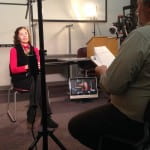 UW-Green Bay Nursing was in the limelight on Wednesday, November 18th. A video crew from The Post House were on campus in the Nursing Lab interviewing and filming nursing faculty and students for a video being created to promote the recruitment of nursing educators for the UW System. All six UW nursing programs are a part of this project, with leadership from the UW-Eau Claire nursing program. The video will contain a vignette of each nursing campus, and comments from nurse educators on the role and reasons for becoming educators. Funding for this project is through a University of Wisconsin System Incentive grant.
UW-Green Bay Nursing was in the limelight on Wednesday, November 18th. A video crew from The Post House were on campus in the Nursing Lab interviewing and filming nursing faculty and students for a video being created to promote the recruitment of nursing educators for the UW System. All six UW nursing programs are a part of this project, with leadership from the UW-Eau Claire nursing program. The video will contain a vignette of each nursing campus, and comments from nurse educators on the role and reasons for becoming educators. Funding for this project is through a University of Wisconsin System Incentive grant.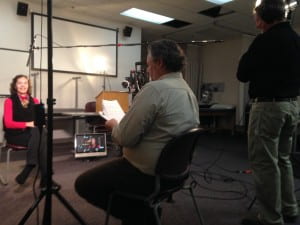
Significant shortages are projected in nursing faculty over the next 2 decades, according to the Wisconsin Center for Nursing (2013). A number of strategies have been proposed to address the potential faculty shortage to assure a sufficient supply of nurses for the future. A finished video is slated for January, and will be hosted in several different locations.
National Non-Traditional Student Week – November 2-6, 2015
“National Non-Traditional Student Week” is a nationwide event observed at hundreds of colleges and universities nationwide. As the name suggests, the purpose of this week is to celebrate undergraduate students who are 25 years old or older, are taking their classes online and at a distance, and have lifestyles that prevent them from pursuing a more traditional route for their college education.
We have several activities planned on campus this week to celebrate our own Non-Traditional students here at UWGB. We have a brief schedule of events to help you identify activities that best fit your schedule.
Activities for Non-Traditional Student Week are planned and sponsored by the Adult Degree Program and are open to all members of the UW-Green Bay community. If you have questions about any of the events and activities surrounding National Non-Traditional Student Week, please contact Micky Doyle with the Adult Degree Program. Micky can be reached at campus ext. 2508 or via e-mail at doylem@uwgb.edu.
Vandenhouten publication
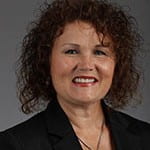 Christine Vandenhouten, associate professor of Nursing, co-authored an article in the September/October 2015 issue of the journal Public Health Nursing about the results of a national study exploring motivators and barriers for obtaining the public health nursing certification. The article, “Credentialing Public Health Nurses: Current Issues and Next Steps Forward,” found that while nursing certification is viewed by many as a means to document specialty knowledge and expertise, few public health nurses hold this credential. The authors found that, among nurses that do, they do it out of a desire to validate professional knowledge and competence with a relative few citing financial incentives as a motivating factor. (Less than 25 percent received any form of compensation for the distinction). The main barriers to certification were being unaware of the eligibility requirements, cost, and the sense that it was not valued/rewarded by their employer. Vandenhouten and her co-authors (colleagues from nursing schools at the University of Maryland and Florida State University) provide recommendations for public health stakeholders including professional organizations, schools of nursing, and policy makers for promoting this important external validation of expertise.
Christine Vandenhouten, associate professor of Nursing, co-authored an article in the September/October 2015 issue of the journal Public Health Nursing about the results of a national study exploring motivators and barriers for obtaining the public health nursing certification. The article, “Credentialing Public Health Nurses: Current Issues and Next Steps Forward,” found that while nursing certification is viewed by many as a means to document specialty knowledge and expertise, few public health nurses hold this credential. The authors found that, among nurses that do, they do it out of a desire to validate professional knowledge and competence with a relative few citing financial incentives as a motivating factor. (Less than 25 percent received any form of compensation for the distinction). The main barriers to certification were being unaware of the eligibility requirements, cost, and the sense that it was not valued/rewarded by their employer. Vandenhouten and her co-authors (colleagues from nursing schools at the University of Maryland and Florida State University) provide recommendations for public health stakeholders including professional organizations, schools of nursing, and policy makers for promoting this important external validation of expertise.
Busy fall for Assistant Professor Tyczkowski
Brenda Tyczkowski, Assistant Professor in the Professional Program in Nursing and Academic Director for the Health 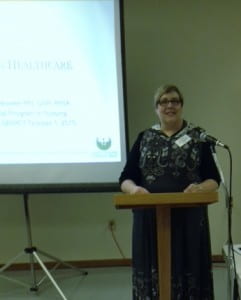 Information Management Technology (HIMT) program at UW-Green Bay has been busy this fall. She recently completed a rigorous 14-week accelerated Health Information Management workshop through Alabama State. She then passed the national certification exam for the Registered Health Information Administrator (RHIA®). RHIA’s are experts in managing the privacy and security of patient health information, administering computer information systems and managing data analysis to improve the quality and safety of patient care. The knowledge gained through the certification process will enhance the curriculum in the HIMT program.
Information Management Technology (HIMT) program at UW-Green Bay has been busy this fall. She recently completed a rigorous 14-week accelerated Health Information Management workshop through Alabama State. She then passed the national certification exam for the Registered Health Information Administrator (RHIA®). RHIA’s are experts in managing the privacy and security of patient health information, administering computer information systems and managing data analysis to improve the quality and safety of patient care. The knowledge gained through the certification process will enhance the curriculum in the HIMT program.
In addition to that, Tyczkowski recently presented “Ageism in Healthcare” to a group of about 90 older adults who are members of an interdenominational faith group, SPIRET. The group had a lively discussion about their experiences with the changing realities of healthcare. They learned how they can be proactive in participating in their care. The group was excited to hear about the availability of patient portals, where they can access their medical record on line, message their care provider and learn about test results. Many attendees planned to access their records and be active participants in their healthcare.
Interprofessional Healthcare Case Competition registration now open
Wisconsin AHEC (Area Health Education Center) is delighted to announce an opportunity for health profession students: our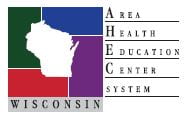 3rd annual Interprofessional Healthcare Case Competition!
3rd annual Interprofessional Healthcare Case Competition!
This competition is designed for health profession students from any degree or discipline, at any Wisconsin university or technical college. Participation is open to all undergraduate and graduate students, to advance the goal that all students will gain first-hand experience and skills in Interprofessional education, collaboration and practice, by working with students from many other degree programs and health profession fields.
The application is open NOW; deadline is Sunday, October 4: Apply Online
How it works: students create a team of 4 to 5 students, with at least three different degrees/professions represented. Every team that applies will participate during the fall semester, with selected teams advancing to the final competition event in January. All student teams receive a copy of the case (every team receives the same case) and each team will conduct an analysis of interprofessional efforts during the care of a patient/client. All teams will submit a 3-page executive summary, one page budget and a PowerPoint presentation by December 9. During the week of December 14, at least one team from each WI AHEC region (a total of 9 teams across the state) will be invited to advance in the competition and present their case analysis to a panel of judges on the competition event date.
This year’s competition event is on January 7 & 8, 2016, at the Kalahari Resort in the Wisconsin Dells. Wisconsin AHEC provides on-site lodging and meals for the 9 teams invited to present their case to the judges on Friday, January 8. Please forward promotional flyer on to anyone you think might be interested in the competition to help get the word out about this wonderful learning experience!
Lecturer Hovarter presents case study
UW-Green Bay Nursing Lecturer, Becky Hovarter, presented her original case study: Using a Standardized Terminology for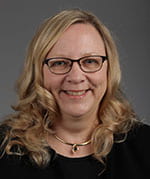 PHN Assessment, Intervention, and Evaluation: Extrapulmonary Tuberculosis to the Informatics Collaboration for Improving Nursing Education, based in Minnesota last Friday. The collaborative, community health educators from the United States and Turkey, is developing a library of evidence based case studies demonstrating standardized terminology through the use of the Omaha System for use in BSN education. Becky’s case study will be piloted in a course taught in Minnesota during the spring semester in at least one community health nursing course.
PHN Assessment, Intervention, and Evaluation: Extrapulmonary Tuberculosis to the Informatics Collaboration for Improving Nursing Education, based in Minnesota last Friday. The collaborative, community health educators from the United States and Turkey, is developing a library of evidence based case studies demonstrating standardized terminology through the use of the Omaha System for use in BSN education. Becky’s case study will be piloted in a course taught in Minnesota during the spring semester in at least one community health nursing course.
2015 Alumni Newsletter
This is the seventh annual edition of our Alumni Newsletter. We want you to stay connected and informed about alumni, recent graduates, faculty and staff as well as news about your alma mater. Send us updates with your good news!
Also, if you have a colleague, friend, or relative looking to gain their BSN? Make sure to tell them about your experience and recommend our program. With the national online track, students can enroll from anywhere in the country. Or, if you or someone else is looking to get their MSN, consider UW-Green Bay’s online Master of Science in Nursing (MSN) in Leadership and Management in Health Systems.
